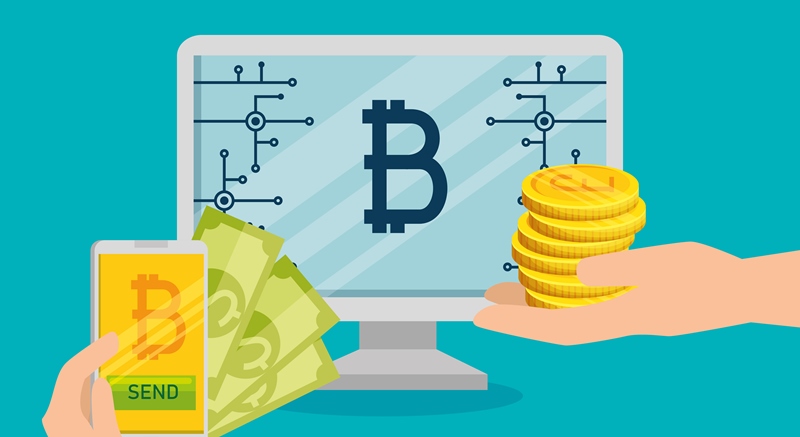
Cryptocurrency Crypto Premier Guide

What is Cryptocurrency?
Cryptocurrency is a form of digital or virtual currency that uses cryptography for security. Unlike traditional currencies issued by governments (such as the US Dollar or the Euro), cryptocurrencies are decentralized and typically operate on a technology called blockchain. This decentralized nature means that no single entity, like a bank or government, controls the currency.
The Evolution of Cryptocurrency
The concept of cryptocurrency dates back to the 1980s, but it wasn’t until the release of Bitcoin in 2009 by an anonymous entity known as Satoshi Nakamoto that the idea gained traction. Bitcoin was the first successful cryptocurrency and remains the most well-known and valuable digital currency today. Since then, thousands of cryptocurrencies have been created, each with its unique features and applications.
How Does Cryptocurrency Work?
Blockchain Technology
At the heart of most cryptocurrencies is blockchain technology. A blockchain is a distributed ledger that records all transactions across a network of computers. This ledger is public and immutable, meaning once a transaction is recorded, it cannot be altered. Each block in the blockchain contains a list of transactions, and new blocks are added to the chain through a process called mining.
Mining and Consensus Mechanisms
Mining is the process by which new cryptocurrency coins or tokens are created and transactions are verified. Miners use powerful computers to solve complex mathematical problems, which validate transactions and add them to the blockchain. As a reward for their efforts, miners receive newly created coins.
Different cryptocurrencies use various consensus mechanisms to achieve agreement among network participants on the validity of transactions. The most common mechanisms are Proof of Work (PoW), used by Bitcoin, and Proof of Stake (PoS), used by cryptocurrencies like Ethereum 2.0 and Cardano.
Popular Cryptocurrencies
Bitcoin (BTC)
Bitcoin is the original cryptocurrency and remains the most popular and valuable. It was designed as a decentralized digital currency to provide an alternative to traditional fiat currencies. Bitcoin transactions are verified by network nodes through cryptography and recorded in a public distributed ledger called a blockchain.
Ethereum (ETH)
Ethereum is a decentralized platform that enables developers to build and deploy smart contracts and decentralized applications (DApps). Ether (ETH) is the native cryptocurrency of the Ethereum platform and is used to pay for transaction fees and computational services.
Ripple (XRP)
Ripple is both a platform and a currency. The Ripple platform is an open-source protocol that is designed to allow fast and cheap transactions. Ripple's native cryptocurrency, XRP, is used as a bridge currency in the Ripple network to facilitate cross-border payments.
Litecoin (LTC)
Litecoin is a peer-to-peer cryptocurrency that was created by Charlie Lee in 2011. It is similar to Bitcoin but with faster transaction times and a different hashing algorithm. Litecoin is often considered the silver to Bitcoin's gold.
How to Buy and Store Cryptocurrency
Buying Cryptocurrency
Buying cryptocurrency can be done through various platforms, including:
- Cryptocurrency Exchanges: Platforms like Coinbase, Binance, and Kraken allow users to buy, sell, and trade cryptocurrencies.
- Peer-to-Peer (P2P) Marketplaces: Platforms like LocalBitcoins facilitate direct transactions between buyers and sellers.
- Bitcoin ATMs: These are physical machines that allow users to buy Bitcoin and other cryptocurrencies with cash.
Storing Cryptocurrency
Once purchased, cryptocurrencies need to be stored in a digital wallet. There are several types of wallets, including:
- Hot Wallets: These are connected to the internet and include mobile, desktop, and web wallets. They are convenient but more vulnerable to hacking.
- Cold Wallets: These are offline storage options like hardware wallets and paper wallets. They are more secure but less convenient for frequent transactions.
Uses of Cryptocurrency
Cryptocurrencies have a wide range of uses, including:
Investment
Many people buy cryptocurrencies as an investment, hoping their value will increase over time. Bitcoin, for example, has seen significant price appreciation since its creation.
Payments
Cryptocurrencies can be used to purchase goods and services from merchants that accept them. Some platforms, like BitPay, facilitate cryptocurrency payments for businesses.
Decentralized Finance (DeFi)
DeFi is a growing sector that aims to recreate traditional financial services like loans, insurance, and trading on the blockchain. Platforms like Uniswap and Aave are leading the DeFi movement.
Remittances
Cryptocurrencies offer a fast and cost-effective way to send money across borders. This is particularly useful in regions with limited access to traditional banking services.
The Future of Cryptocurrency
The future of cryptocurrency is promising, with ongoing developments in technology, regulation, and adoption. As more people and institutions recognize the potential of cryptocurrencies, their integration into the global financial system is likely to increase.
Technological Advancements
Innovations like Layer 2 solutions, which aim to improve scalability and reduce transaction costs, and interoperability protocols, which enable different blockchains to communicate, are critical for the growth of the cryptocurrency ecosystem.
Regulation
Regulation is a double-edged sword for cryptocurrency. While clear regulations can provide legitimacy and protect consumers, overly restrictive policies could stifle innovation. Striking the right balance is crucial for the sustainable growth of the industry.
Adoption
Mainstream adoption of cryptocurrency will depend on factors such as ease of use, security, and regulatory clarity. As these areas improve, more individuals and businesses are likely to adopt cryptocurrencies for various uses.
Cryptocurrency represents a significant shift in how we perceive and use money. From its origins with Bitcoin to the diverse and rapidly evolving ecosystem we see today, cryptocurrencies offer numerous opportunities and challenges. Whether you're interested in investing, using cryptocurrency for payments, or exploring the world of DeFi, understanding the fundamentals is crucial.
Deja una respuesta





Otros artículos que podrían interesarte: